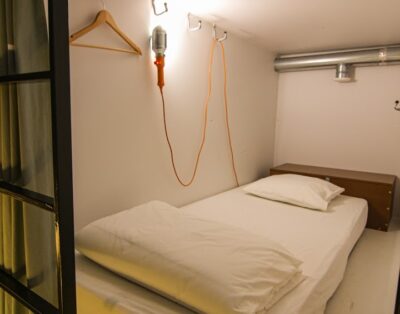How to Find a Great Rental Home in UK: Expert Tips and Tricks
One of the first things to consider when searching for a rental home in the UK is location. Different areas of the country will have different rental prices, as well as different amenities and attractions. It’s important to think about what is important to you, whether it’s being close to work, having easy access to public transportation, or being near parks and green spaces. Once you have a clear idea of what you’re looking for, you can start to narrow down your search to specific neighborhoods or towns.
Another important factor to consider is budget. Rental prices in the UK can vary widely depending on the location, size, and condition of the property. It’s important to have a clear idea of your budget before you start your search, so that you don’t waste time looking at properties that are outside of your price range. You may also want to consider other expenses, such as utility bills, council tax, and transportation costs, when calculating your budget.
Understanding the UK Rental Market
When searching for a rental home in the UK, it’s important to have a good understanding of the current rental market. This will help you make informed decisions and find a great rental property that suits your needs and budget. Here are some key things to know about the UK rental market:
Types of Rental Properties
There are various types of rental properties available in the UK, including apartments, flats, houses, and studios. Apartments and flats are popular choices for renters who want a low-maintenance lifestyle, while houses offer more space and privacy. Studios are typically smaller and more affordable, making them a good option for students or young professionals.
Average Rental Prices
Rental prices in the UK vary depending on the type of property, location, and other factors. According to recent data, the average monthly rent for a one-bedroom apartment in the UK is around £650-£800, while a two-bedroom apartment can cost around £900-£1,200 per month. House rentals can range from £1,000 to £2,500 per month, depending on the size and location.
Popular Areas for Renters
There are several popular areas in the UK that are known for their rental properties. London is a top choice for many renters, with a wide range of apartments and houses available in various neighborhoods. Other popular areas include Manchester, Bristol, and Edinburgh, which offer a mix of urban and suburban living options.
By understanding the UK rental market, you can make informed decisions and find a rental property that meets your needs and budget. Keep in mind that rental prices and availability can vary depending on the location and time of year, so it’s always a good idea to do your research and work with a reputable rental agency.
Starting Your Search
When looking for a rental home in the UK, it’s important to start your search early to give yourself enough time to find the perfect property. Here are a few ways to get started:
Online Property Portals
There are several online property portals that list rental homes in the UK, such as Rightmove, Zoopla, and OnTheMarket. These websites allow you to search for properties based on your preferences, such as location, budget, and number of bedrooms. You can also set up alerts to be notified when new properties that match your criteria become available.
Local Estate Agents
Another option is to contact local estate agents in the area where you want to live. They will have access to a range of properties that may not be listed online, and can help you find a home that meets your needs. Estate agents can also provide valuable advice on the local rental market and help you negotiate with landlords.
Rental Marketplaces
Rental marketplaces like Airbnb and HomeAway are also worth considering, especially if you’re looking for a short-term rental or a holiday home. These platforms allow you to rent a home directly from the owner, and often offer more flexibility and unique properties than traditional rental options.
No matter which method you choose, it’s important to do your research and carefully review the terms of any rental agreement before signing. By taking the time to find the right rental home, you can ensure a comfortable and enjoyable living experience in the UK.
Evaluating Rental Listings
When searching for a rental home in the UK, it is important to evaluate the rental listings carefully to ensure that you find a great home that meets your needs. Here are some tips to help you evaluate rental listings effectively:
Reading Between the Lines
When reading a rental listing, it is important to read between the lines to understand what the property has to offer. Look for details about the property’s location, size, and amenities. Pay attention to the photos, as they can give you a good idea of the property’s condition and layout. If there are no photos, it may be a red flag.
Spotting Red Flags
It is important to be aware of red flags when evaluating rental listings. Some common red flags include listings with no photos, listings with vague or incomplete descriptions, and listings with prices that are too good to be true. Be cautious of listings that require you to wire money or provide personal information before you can view the property.
Contacting Landlords or Agents
Once you have found a rental listing that you are interested in, it is important to contact the landlord or agent to ask any questions you may have and to schedule a viewing. Be prepared to provide information about yourself, such as your employment status and income, as landlords and agents may require this information before renting to you. Keep in mind that a landlord or agent who is difficult to reach or unresponsive may be a red flag.
By carefully evaluating rental listings and being aware of red flags, you can find a great rental home that meets your needs and fits within your budget.
Viewing Properties
When searching for a rental home in the UK, viewing properties is an essential step in the process. This is your opportunity to get a feel for the property, assess its condition, and ask any questions you may have. Here are some tips for making the most out of your property viewings.
Scheduling Viewings
When scheduling viewings, it is important to be flexible. Many landlords and letting agents have busy schedules, so try to accommodate their availability. It is also a good idea to view properties during daylight hours, as this will give you a better sense of the property’s natural light and surroundings.
What to Look for During Viewings
During viewings, it is important to pay attention to the condition of the property. Look for any signs of damage or wear and tear, such as cracks in the walls or stains on the carpet. Check that all appliances and fixtures are in working order, and make note of any repairs that may be needed.
It is also important to consider the property’s location. Take note of the surrounding area and assess whether it is a good fit for your lifestyle. Consider factors such as proximity to public transportation, local amenities, and noise levels.
Asking the Right Questions
Don’t be afraid to ask questions during property viewings. This is your opportunity to gather as much information as possible about the property and its history. Some questions to consider asking include:
- How long has the property been on the market?
- Are there any known issues with the property?
- What is included in the rent?
- Are there any additional fees or charges?
- What is the landlord’s policy on repairs and maintenance?
By asking the right questions, you can gain a better understanding of the property and make an informed decision about whether it is the right fit for you.
The Application Process
When it comes to finding a great rental home in the UK, the application process can be a crucial step in securing your dream property. In this section, we will discuss the key elements of the application process, including preparing your documentation, understanding the tenancy agreement, and negotiating rental terms.
Preparing Your Documentation
Before you begin the application process, it is important to ensure that you have all the necessary documentation in order. This may include proof of income, references from previous landlords, and identification documents such as a passport or driver’s license.
It is important to ensure that your documentation is up-to-date and accurate, as any discrepancies or missing information could delay the application process or even result in a rejection.
Understanding the Tenancy Agreement
Once you have found a rental property that you are interested in, you will need to review and sign a tenancy agreement. This is a legally binding document that outlines the terms and conditions of your tenancy, including the rental price, length of tenancy, and any additional fees or charges.
It is important to read the tenancy agreement carefully and ask any questions you may have before signing. If you are unsure about any aspect of the agreement, seek legal advice to ensure that you fully understand your rights and obligations as a tenant.
Negotiating Rental Terms
While some rental properties may have fixed rental prices and terms, others may be open to negotiation. If you are interested in a property but the rental price is outside of your budget, consider negotiating with the landlord or letting agent.
Be prepared to make a reasonable offer and provide evidence of your ability to pay, such as proof of income or references from previous landlords. Keep in mind that the landlord may have other applicants interested in the property, so it is important to be flexible and open to compromise.
By following these steps and being prepared for the application process, you can increase your chances of finding a great rental home in the UK.
Moving In
Planning Your Move
Before moving in, it’s important to plan ahead. Make sure to schedule a move-in date with your landlord and confirm any move-in requirements such as a security deposit or renter’s insurance. Create a checklist of items you need to bring with you and make sure to pack them securely. Label your boxes with the contents and the room they belong in to make unpacking easier.
Setting Up Utilities
Setting up utilities is an important step when moving into a rental home. Contact the utility companies in advance to schedule the start of service for electricity, gas, water, and internet. Be sure to provide the companies with your new address, move-in date, and any other necessary information.
Rental Insurance
Rental insurance is an important consideration when moving into a rental home. It can protect your personal belongings in case of theft, damage, or other unexpected events. Contact an insurance provider to discuss your options and find a policy that works for you. Make sure to read the policy carefully and understand what is covered and what is not.
Remember to take your time and plan ahead when moving into a rental home. By following these steps, you can ensure a smooth transition and a successful move-in experience.
Living in Your Rental Home
Maintaining the Property
When living in a rental home, it’s important to maintain the property to keep it in good condition. This includes keeping the home clean and tidy, reporting any maintenance issues to the landlord promptly, and following any guidelines or rules outlined in the lease agreement. Tenants should also be mindful of any wear and tear caused by their actions and take responsibility for any damages.
Communicating with Your Landlord
Good communication is key when renting a home. Tenants should establish a positive relationship with their landlord and keep them informed of any issues or concerns. This includes reporting any necessary repairs or maintenance, as well as requesting permission for any modifications to the property. It’s also important to communicate any changes in living arrangements, such as the addition of a roommate or pet.
Renewing Your Lease
As the end of the lease term approaches, tenants should consider whether they want to renew their lease or move out. If they wish to stay, they should communicate their intentions to the landlord in a timely manner and review the terms of the new lease agreement carefully. It’s important to note any changes or updates to the lease and negotiate any necessary modifications before signing. If the tenant decides to move out, they should provide notice to the landlord in accordance with the terms of the lease agreement.
Planning Your Exit
When renting a home in the UK, it’s important to plan your exit from the property well in advance. This ensures that you leave the property in good condition and get your deposit back. Here are some key considerations when planning your exit:
Giving Notice
Before leaving the rental property, it’s important to give the landlord or letting agent notice of your intention to vacate. This is usually done in writing and should be done in accordance with the terms of your tenancy agreement. Typically, you’ll need to give at least one month’s notice, but this can vary depending on the terms of your agreement.
End-of-Tenancy Cleaning
When leaving the rental property, it’s important to ensure that it’s clean and tidy. This includes cleaning the carpets, floors, and surfaces, as well as ensuring that any rubbish is disposed of properly. If you don’t have time to do this yourself, you may want to consider hiring a professional cleaning service.
Getting Your Deposit Back
To ensure that you get your deposit back, it’s important to leave the property in good condition. This includes repairing any damage that has been caused during your tenancy, such as broken appliances or damage to walls or floors. It’s also important to ensure that all bills have been paid and that the property is left in a good state of repair.
By planning your exit from the rental property well in advance, you can ensure that you leave the property in good condition and get your deposit back. Remember to give notice in accordance with your tenancy agreement, clean the property thoroughly before leaving, and repair any damage that has been caused.



